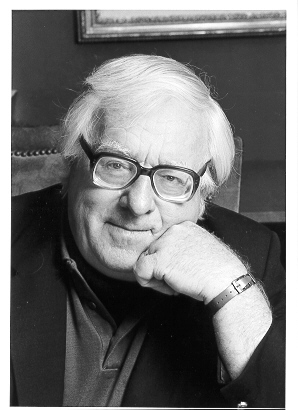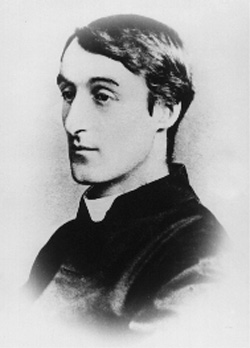Enough now. There you have it. There are one hundred stories from almost forty years of my life contained in my collected stories. They contain half the damning truths I suspected at midnight, and half of the saving truths I re-found next noon. If anything is taught here, it is simply the charting of the life of someone who started out to somewhere—and went. I have not so much thought my way through life as done things and found what it was and who I was after the doing. Each tale was a way of finding selves. Each self found each day slightly different from the one found twenty-four hours earlier.
– from Zen in the Art of Writing, by Ray Bradbury
 Ray Bradbury, who died this week aged 91, has had an immeasurable impact on my writing. Perhaps moreso than any other writer, even though I’ve read only a fraction of his enormous fictional output. What I have read I have greatly enjoyed, but it’s his thin book of essays, Zen in the Art of Writing, for which I am most grateful. This book, to use Bradbury’s own metaphor for writing, was a landmine. I stepped on it when I was writing the early drafts of The Girl with Glass Feet and it blasted apart a great many false notions I’d developed about writing. About what it meant to write, what it was for, who it was for. Yesterday I reread it and rediscovered its many vital lessons.
Ray Bradbury, who died this week aged 91, has had an immeasurable impact on my writing. Perhaps moreso than any other writer, even though I’ve read only a fraction of his enormous fictional output. What I have read I have greatly enjoyed, but it’s his thin book of essays, Zen in the Art of Writing, for which I am most grateful. This book, to use Bradbury’s own metaphor for writing, was a landmine. I stepped on it when I was writing the early drafts of The Girl with Glass Feet and it blasted apart a great many false notions I’d developed about writing. About what it meant to write, what it was for, who it was for. Yesterday I reread it and rediscovered its many vital lessons.
A lot of books have been published with a claim on the cover that they’ll teach you how to write. A lot of them won’t. They’ll tangle you up with all the wrong concerns. The vast majority of them will teach you the same old stuff about plot construction, tone, narrative voice, and so on and so on in tedious technical detail that will make you feel as if you’re building a robot, not a novel. Don’t get me wrong, those things are important, but they’re not the starting point, they’re just aspects of final editing and technique. Reading a hundred such books, even knowing them off by heart, will not help you develop the most fundamental part of your writing: your art.
Bradbury treated writing, unashamedly, as art. Not art in a cerebral, critic-at-the-gallery fashion but art as the first cave painters saw it: as the first artists, trembling fitfully before the first painted bison, which seemed to them to snort and and stamp along rock walls. Art, to Bradbury, was just such a primal thing. An expression of something fundamental to the artist’s self. If that seems a high-falutin’ way to talk about things, please blame me not Bradbury. This was a man who couldn’t abide high-falutin’ of any sort. He loved Buck Rogers just as much as he loved Gerard Manley Hopkins and, it seems to me, would not let either the dogged sci-fi fan or the theorising poetry professor tell him that the two had no place beside each other.
Zen in the Art of Writing is not a dry construction manual for building novels, but an exhortation to the would-be novelist to attune her/himself to her/his own art. In it, Bradbury talks with infectious enthusiasm about his own experiences, specifically of where his fiction came from and how it was invoked. It all came from inside him, of course, but it wasn’t conceptualised and planned and measured out on graph paper. It was summoned from the shadows of the mind, those deep and hidden recesses that each of us contain and which rumble like thunder behind our thoughts while the fretting, thinking part of us forgets their existence and begins to believe that it alone is the whole self.
We are working not for work’s sake, producing not for production’s sake. If that were the case, you would be right in throwing up your hands in horror and turning away from me. What we are trying to do is find a way to release the truth that lies in all of us.
– from Zen in the Art of Writing, by Ray Bradbury
This book is a liberation for any writer. I reread it yesterday and wished at once that I had reread it sooner. There is much to learn from its author’s unshakeable enthusiasm for the act of creation and, if you embark upon that learning process yourself, I can assure you that it will be no sleepy school lesson on a rainy afternoon. All the evidence suggests that Ray Bradbury lived an incredibly fulfilled life, and I for one am grateful that he chose to share his secrets.
And what, you ask, does writing teach us?
First and foremost, it reminds us that we are alive and that it is a gift and a privilege, not a right. We must earn life once it has been awarded us. Life asks for rewards back because it has favored us with animation. So while our art cannot, as we wish it could, save us from wars, privation, envy, greed, old age, or death, it can revitalize us amidst it all.
– from Zen in the Art of Writing, by Ray Bradbury

